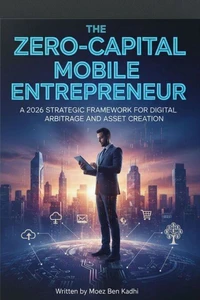The common axiom that "data is the new oil" has become a pervasive, if flawed, anchor for modern strategic thinking. While the metaphor correctly identifies data as a primary input for the 21st-century economy, it fails to capture its unique and revolutionary economic properties. Unlike oil, data is non-rivalrous; it can be used by an infinite number of actors simultaneously without being depleted.
It is also infinitely renewable, generated by every digital action and interaction. These fundamental differences mean the economic models built to extract and refine physical resources are wholly inadequate for managing this new asset class.
The common axiom that "data is the new oil" has become a pervasive, if flawed, anchor for modern strategic thinking. While the metaphor correctly identifies data as a primary input for the 21st-century economy, it fails to capture its unique and revolutionary economic properties. Unlike oil, data is non-rivalrous; it can be used by an infinite number of actors simultaneously without being depleted.
It is also infinitely renewable, generated by every digital action and interaction. These fundamental differences mean the economic models built to extract and refine physical resources are wholly inadequate for managing this new asset class.

 , qui est-ce ?
, qui est-ce ?